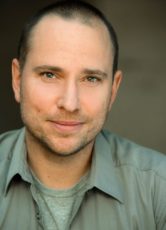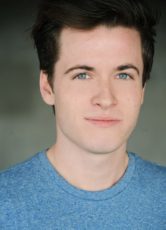
The legendary acting teacher Larry Moss has directed numerous theater productions and coached countless actors for stage and screen for over forty years. Among the celebrated talents he’s worked with are Helen Hunt on her Oscar-winning role in As Good As It Gets, Michael Clarke Duncan for his Oscar-nominated performance in The Green Mile, Hilary Swank in her Academy Award-winning performance in Boys Don’t Cry, as well as Leonardo DiCaprio’s acclaimed roles in The Aviator and The Wolf of Wall Street. Moss is also the author of the book The Intent to Live: Achieving Your True Potential as an Actor.
Moss started off as an actor, studying under Sanford Meisner, Stella Adler and Warren Robertson, among others. As a master teacher, his instruction focuses on deep emotional work, connection and authenticity in performances.
During a Filmnut Live interview, Moss shared what he believes to be two priorities for new talents:
1. Focus your attention on your scene partner
As a budding actor himself at the age of 19, Moss moved to New York to study under Meisner. “Sandy Meisner taught being aware of the other person, putting your attention on the other person, watching their behavior,” he recalls. This technique of focusing on someone or something other than himself helped Moss to move beyond his self-consciousness. “It was the beginning of me not being so aware of myself that I couldn’t function—because I came into the acting with a lot of tension, a lot of self-doubt, a lot of inhibition and terror and my body had so pushed it down. My body had consumed so much fear that I was really a defense mechanism against expressing the fear—which of course came out as terror.”
2. Study with a vocal production coach
Moss found his performance abilities blossoming once he started working with a voice coach to help him breathe properly. “That was something that was so huge for me because what I found out is if I breathed, I’d start to get emotional … You notice when people get very emotional, what you’re aware of a lot is they [finally release the breath they’ve been holding in].” So he advises new talents, “You’d want to go to an excellent vocal coach, meaning a vocal production coach.” Such specialists focus on vocal techniques and breath control, speech clarity, vocal character development, voice projection and articulation. Moss continues, “When you talk to Judi Dench or Daniel Day-Lewis or any of the great British actors, they talk about how at the beginning of their training, they were taught how to breathe and support the tone of their voice right away. And unfortunately in America, we don’t do that enough.”
Moss also shared what he believes to be the two hurdles that stop an actor from achieving a successful career: psychological issues and lack of technique. In a 16th Street Actors Studio interview, he explained:
1. Psychological issues
While people of all professions can struggle with emotional wellbeing, Moss finds that actors must pay close attention to their mental health. “To be an actor is very difficult. You know, I mean it’s the old proverbial rejection. If you have insecurities, God knows acting will bring it up. If you want attention, if the casting director looks at you without support or they dismiss you and that goes too deeply into you, that’s a psychological problem, It’s not personal. Show business is the least personal experience in the world. Nobody gives a rat’s a** about you. The director is saying, ‘Can they make me look good? Can they more importantly tell the story that I want to tell?’ It’s not personal.”
2. Lack of technique
Rather than embodying star quality, Moss believes an actor’s success boils down to technique. “You can be as good as you want to be based on the passion you have to bring stories to life through character,” he says. Referring to the lessons he received about the craft early on, Moss recalls, “[My teachers] made me wake up. They said, ‘You work hard, Larry. You get off your a** and you go to work—you go to class, you work out your voice, you work out your body, you read the great plays, you read the great novels, you go to the museum. You give something back. It’s not about you.”
Now from the perspective of an acting coach, Moss asserts, “This is right. And I promise you actors, if you’re waiting for somebody to give you ‘it,’ there’s no there there. There’s just work—the joy to do a play, to work with other actors, to work with great writers.”
He adds, “I get very passionate when I talk to actors because I am you, I know your hearts. I don’t know you, but I know your heart; I know the desire. And I know the tragedy of laziness, the tragedy of entitlement, the tragedy of ‘It’s about me.’ It’s not about you. It’s deeply about you, and it’s not about you. And once you understand that, you’re free. You’re free to read the plays and bring them alive. And then maybe you’ll get a movie that the world will see.”
Want to land your next great acting role? Sign up or log in to Casting Frontier and start auditioning today!
Related articles:
Teachings of Master Vocal Coach Patsy Rodenburg
Angelina Jolie Had a Dark Backup Plan
AI’s Impact on Actors




